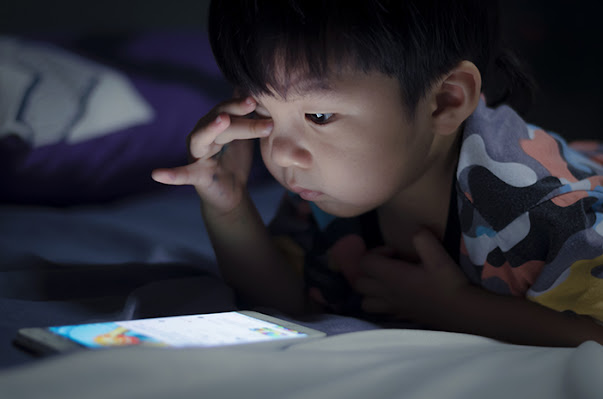Children today are growing up in the midst of technological development, with access to digital devices having become commonplace even from an early age. This phenomenon includes their interactions with digital devices, which often have a significant impact on their sleep patterns, physical activity, and social development. In this essay, we will further explore the impact or influence of these technologies on children in an increasingly connected digital world.
The interactions children have with digital devices can significantly affect their sleep patterns. With the proliferation of smartphones, tablets and computers, children are increasingly exposed to screen light, especially at night which leads to difficulty falling asleep and poorer sleep quality overall. In addition, the content consumed on these devices such as video games, social media, or streaming services often stimulates the mind, making it harder for children to wind down before bed. As a result, many children experience shorter sleep duration and irregular sleep schedules, which can impact their overall health. This growing reliance on digital devices underscores the need to understand and mitigate their impact on children's sleep patterns to promote healthier development.
Overuse of digital devices can lead to a decrease in children's physical activity. The more they are glued to devices like tablets, smartphones, or computers, the less time they spend playing and exercising outdoors. This decrease in physical activity has severe consequences for their health, including an increased risk of obesity and motor development problems. Parents and educators need to regulate the use of digital devices and encourage children to balance time using technology and physical activity.
Children exposed to digital devices show a significant impact on their social development. The more time they spend in front of a screen on a device such as a tablet, smartphone, or computer, the less opportunity there is for children to engage in direct social interactions with peers or family. This can hinder their ability to build social skills, such as communicating effectively, reading facial expressions, and interpreting other people's emotions. With limited real-life social interactions, children may have difficulty in building healthy relationships and understanding social dynamics. Therefore, it is essential for parents and caregivers to monitor and time children's use of digital devices and provide opportunities for them to interact directly with others, thus supporting their optimal social development.
In summary, there are three impacts or influences of these technologies on children in an increasingly connected digital world. They significantly impact their sleep patterns, physical activity, and social development. We believe that with mindful regulation and guidance, children can benefit from technology without compromising their well-being. By setting screen time limits, encouraging outdoor play, and fostering direct social interactions, parents and educators can mitigate adverse effects. Consistently implementing these measures can lead to healthier sleep habits, increased physical activity, and improved social skills, enabling children to thrive in both digital and real-world settings.
By Group 6:






0 Comments